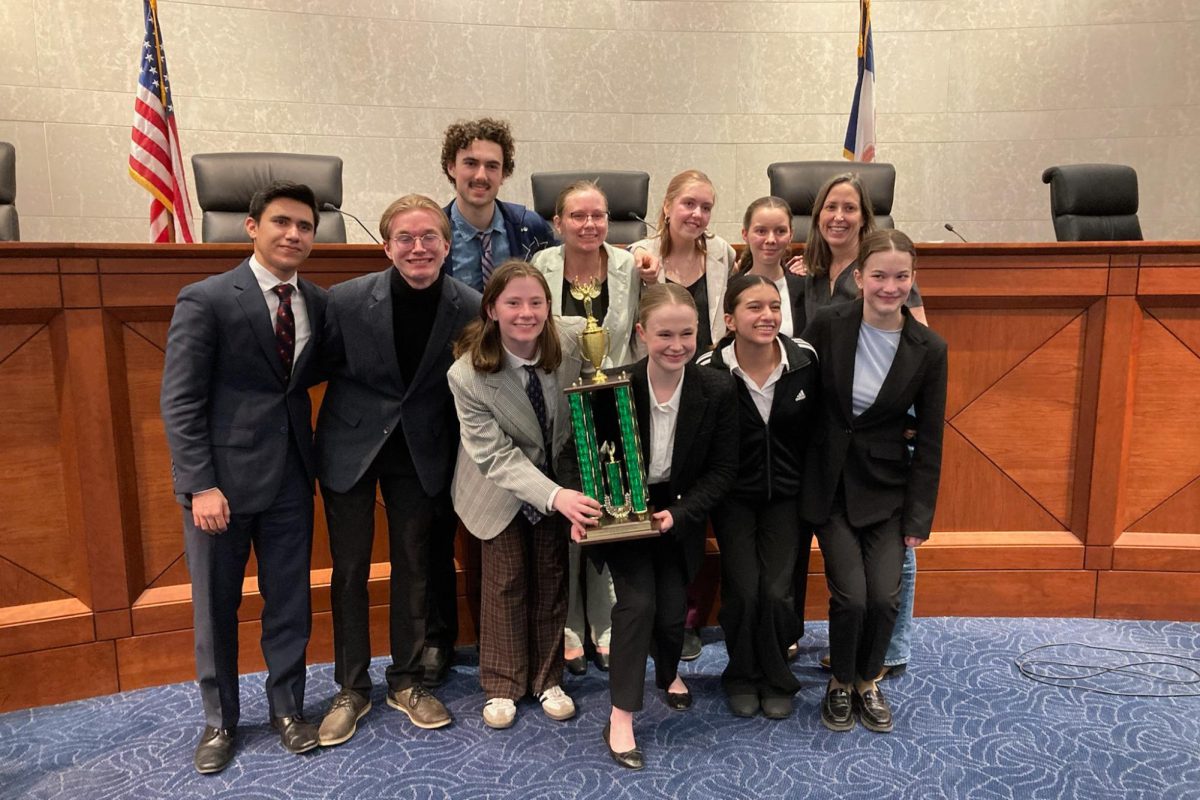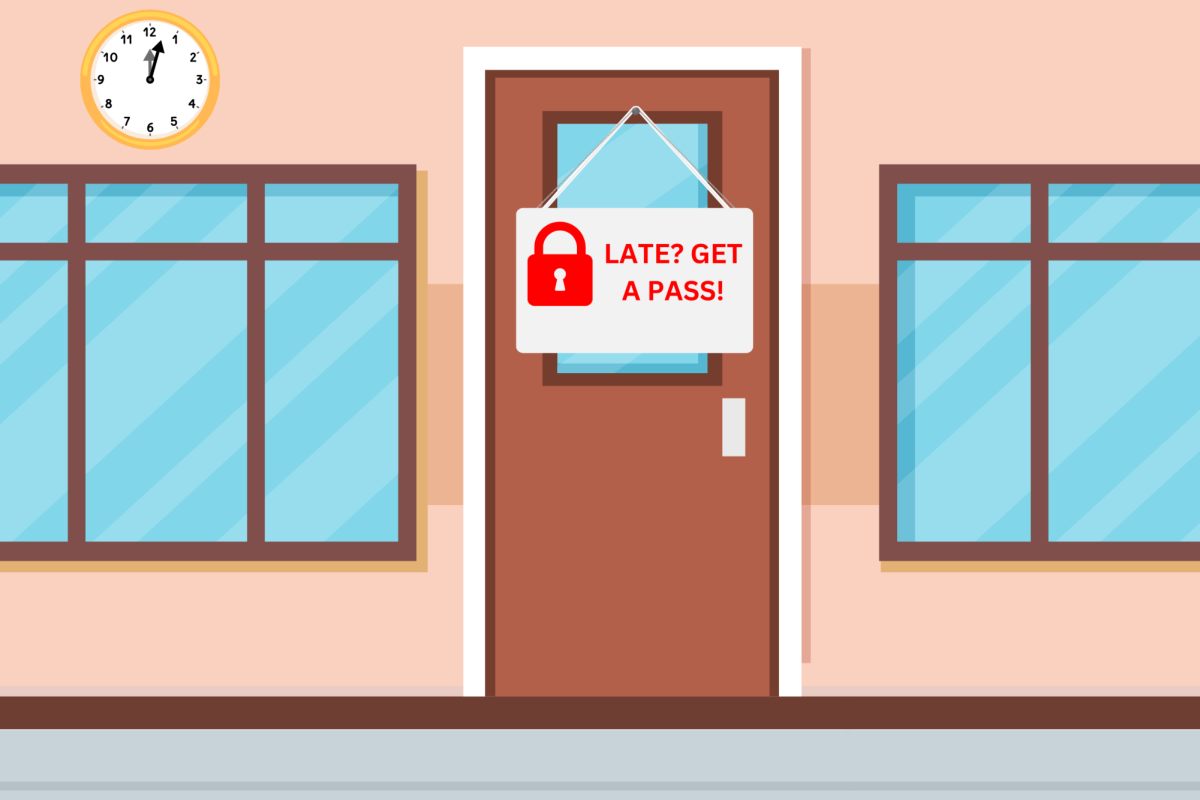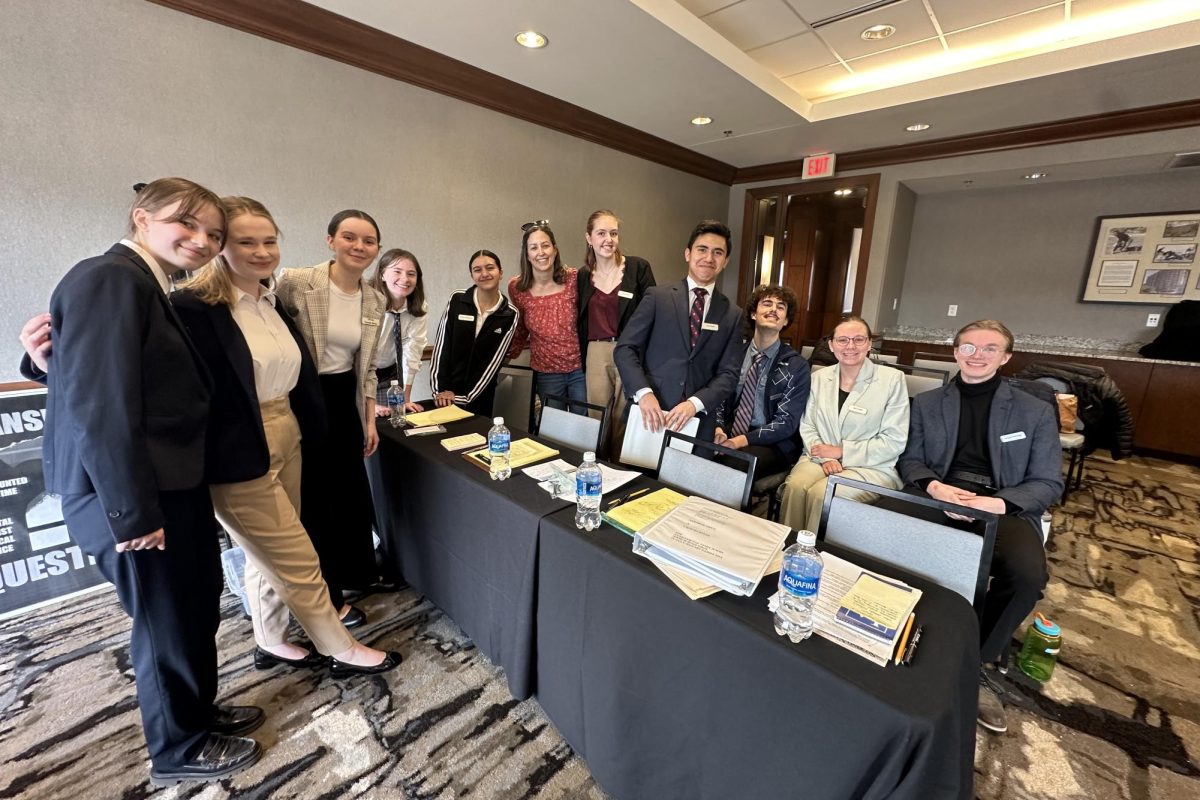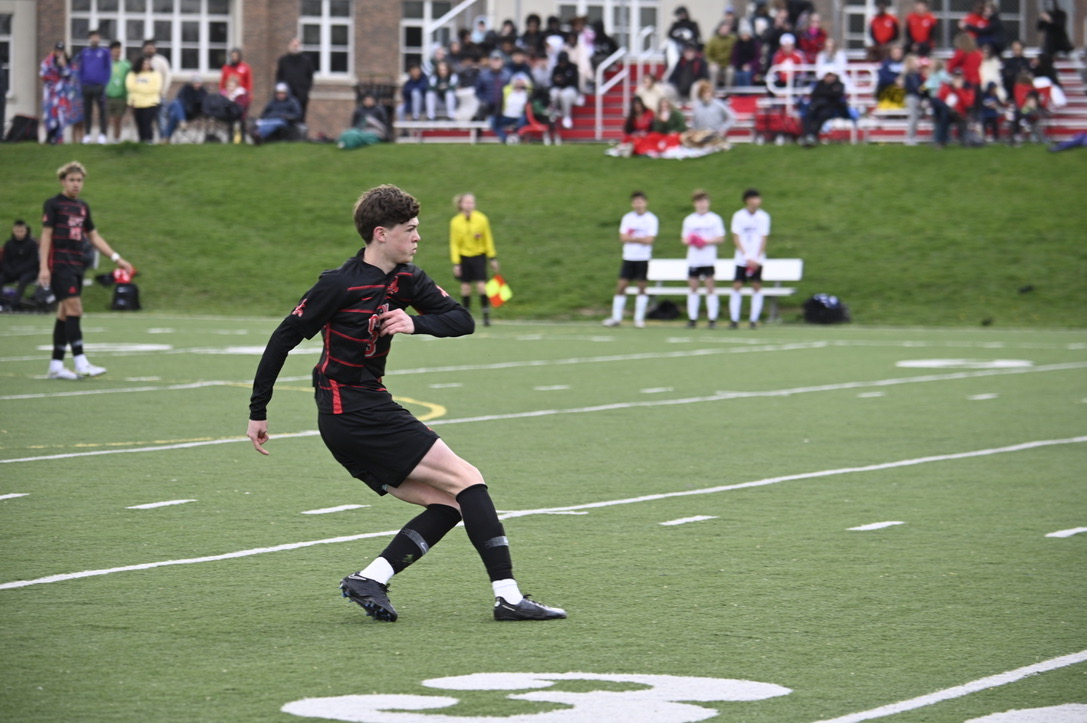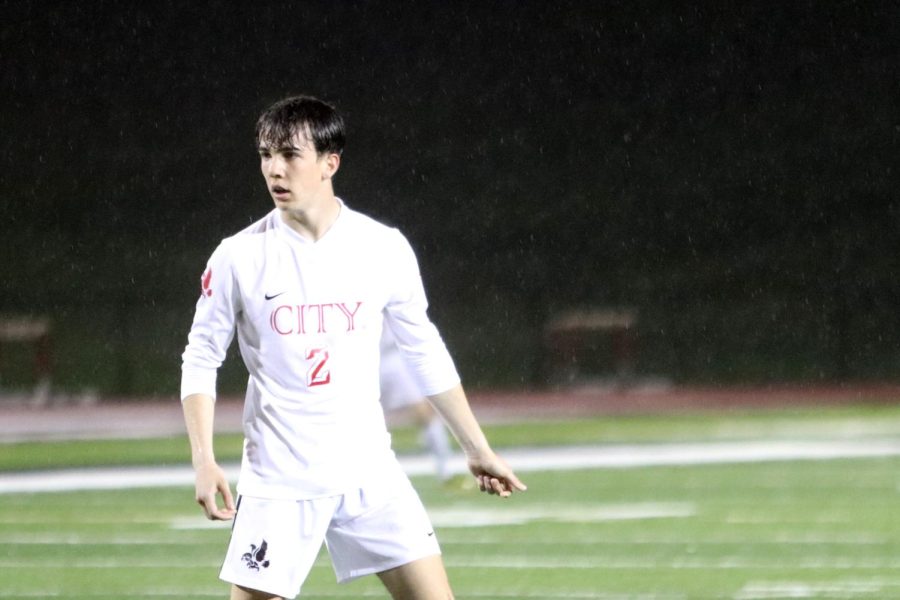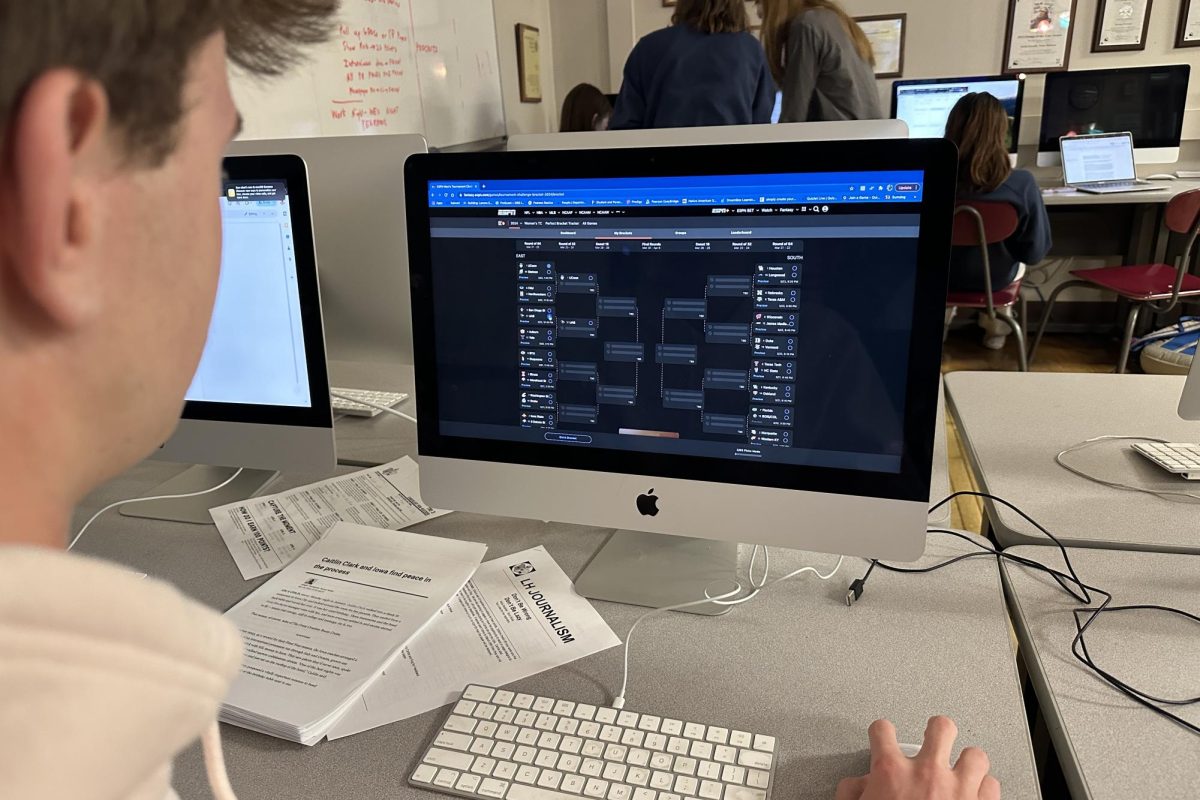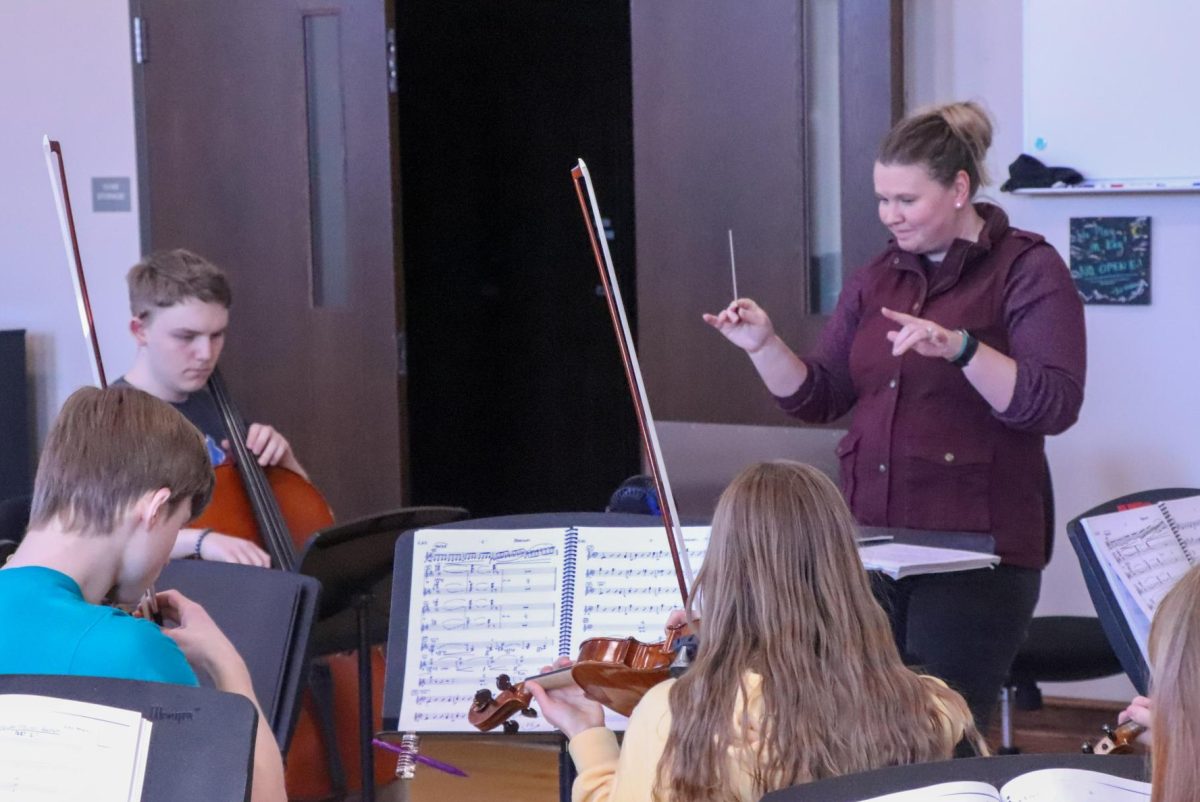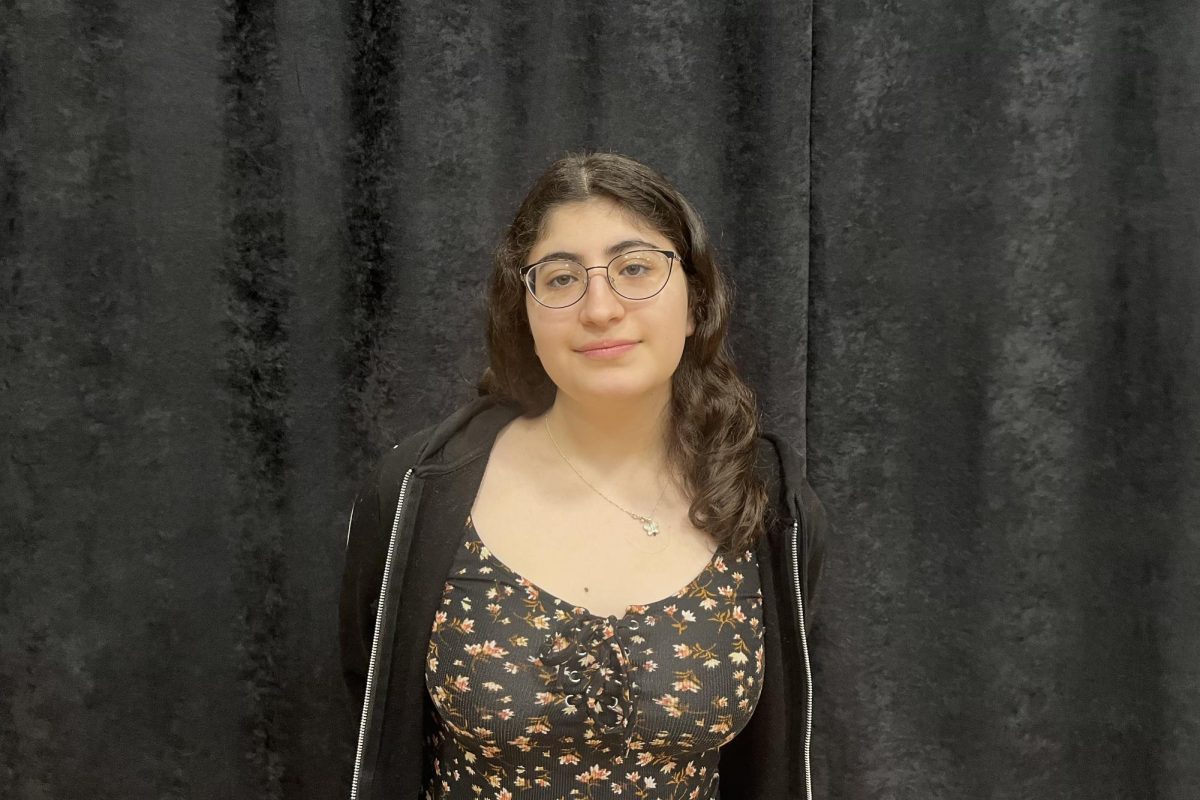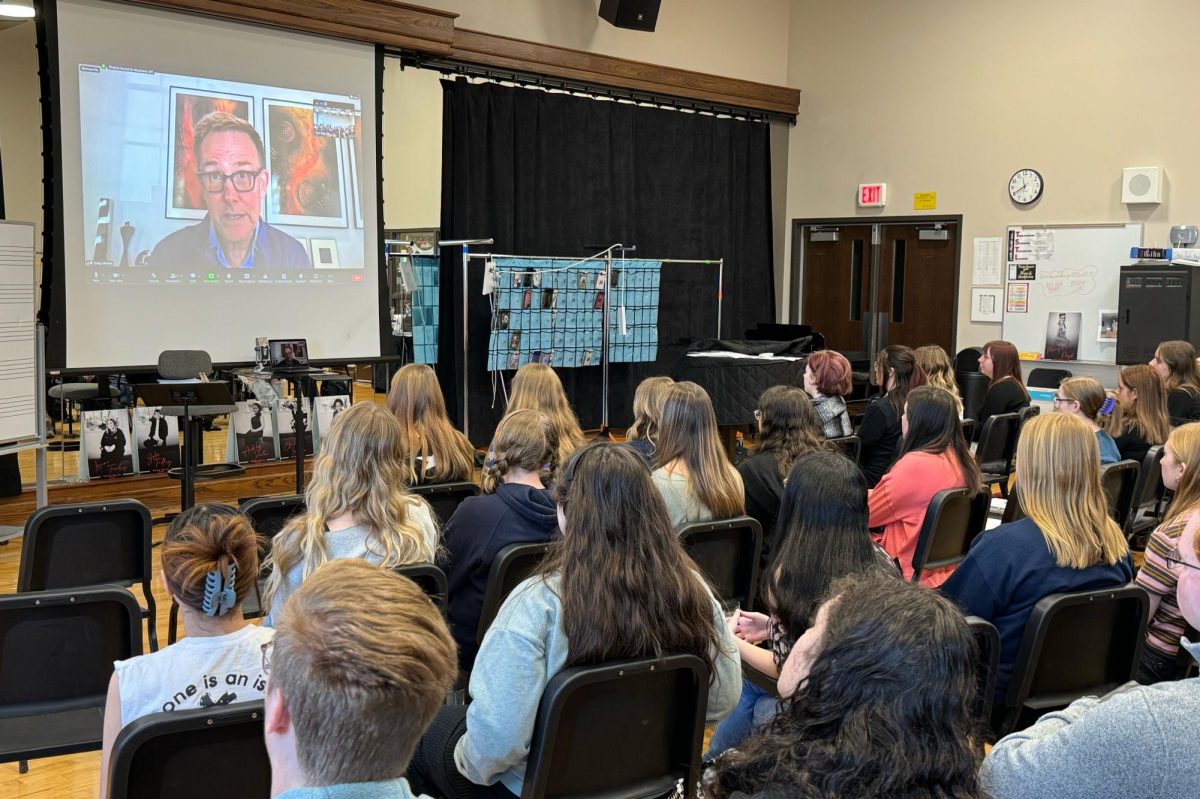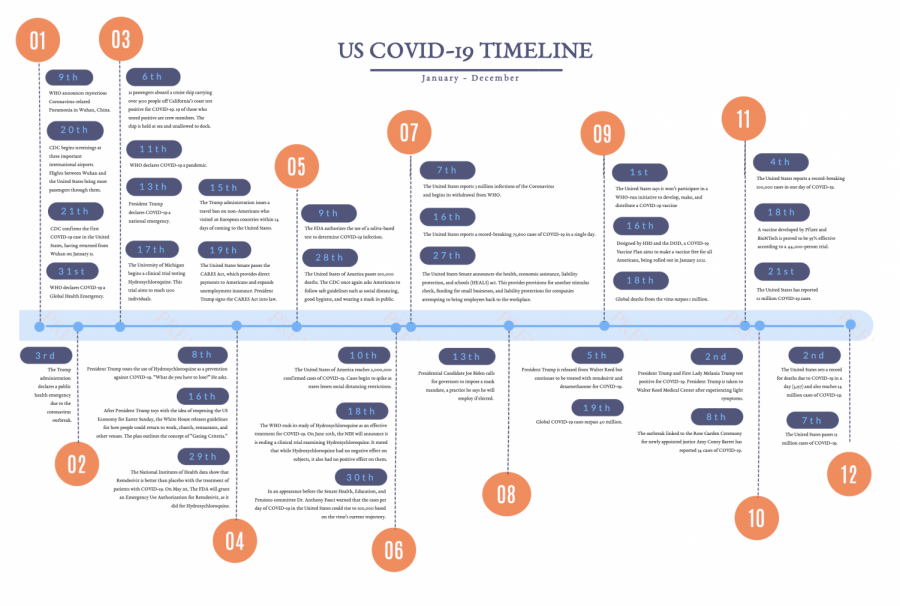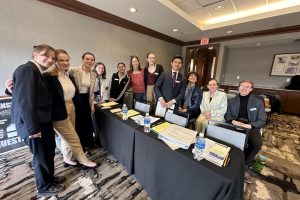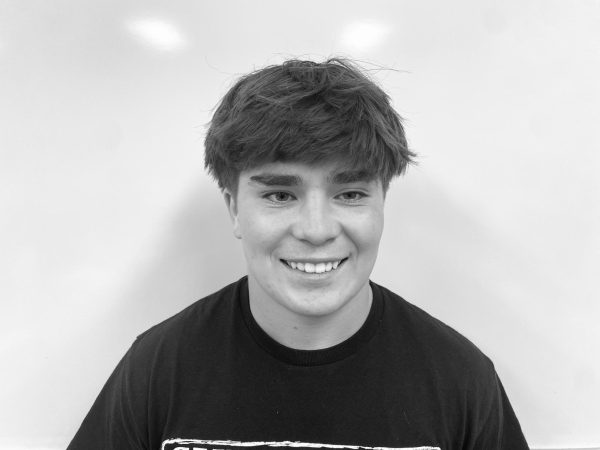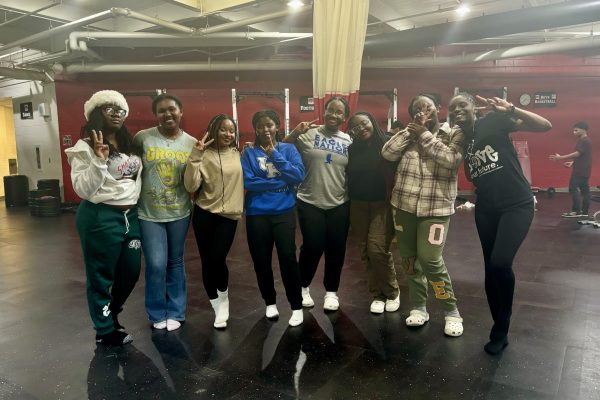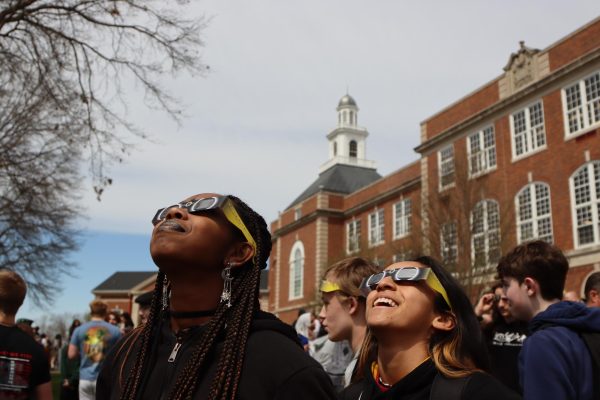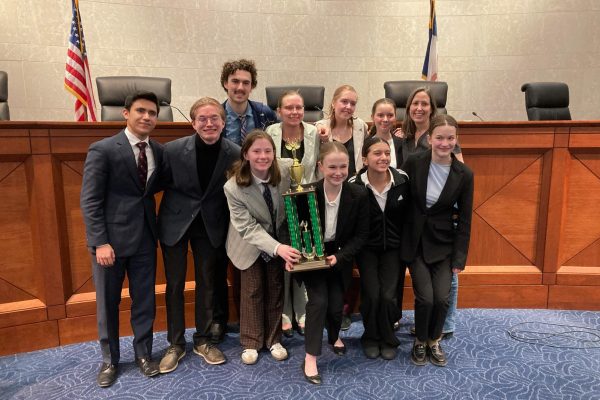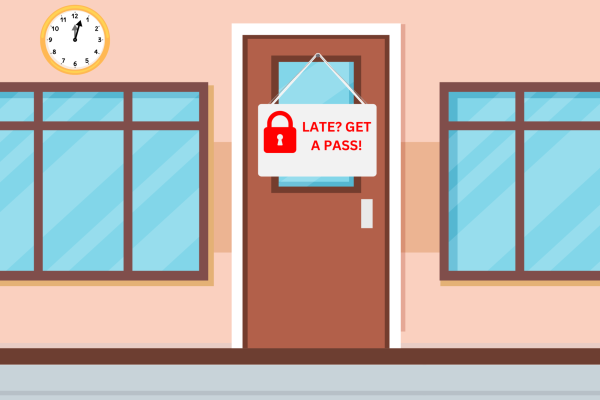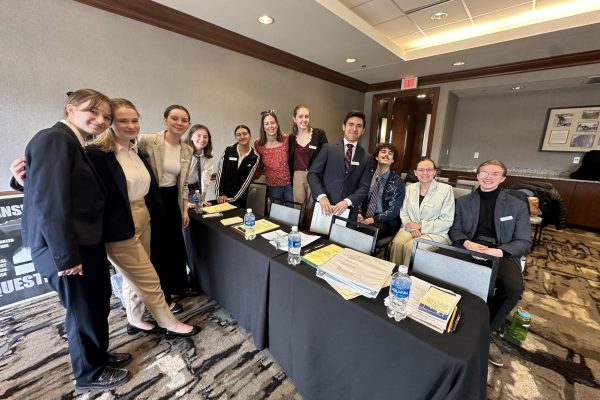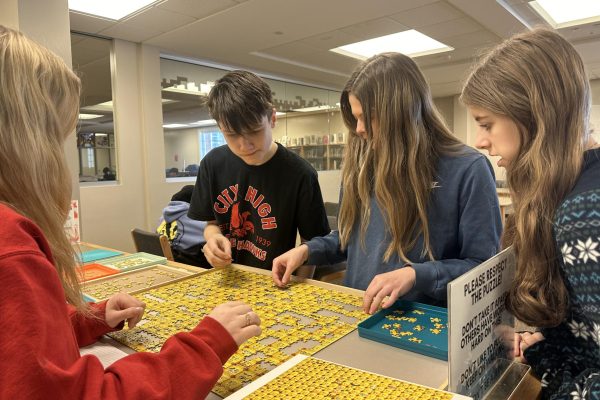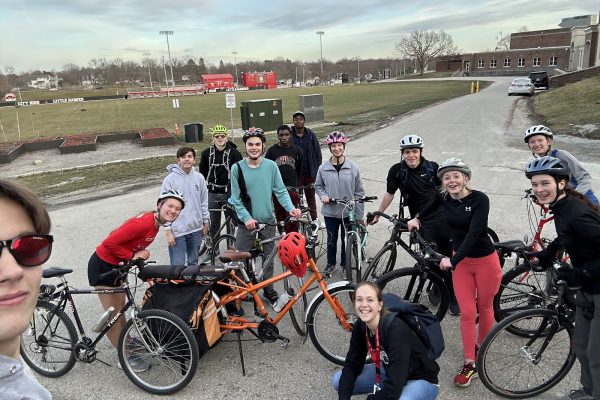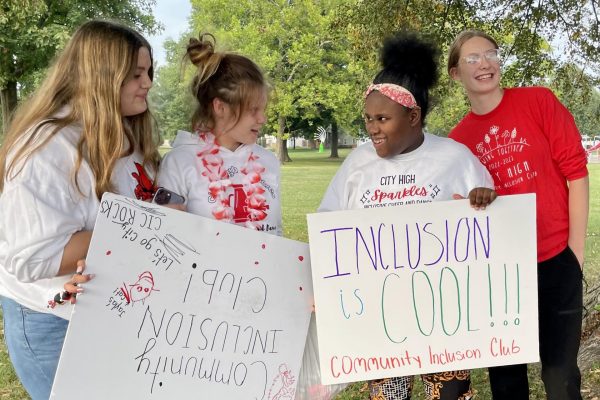One Year In
Healthcare workers share their thoughts almost a year into the global COVID-19 pandemic.
Haileigh Steffen and Isaac Bullwinkle
COVID-19 Timeline
December 18, 2020
In Iowa, there were 15,351 reported COVID cases during just the first week of December according to the New York Times. In November, the number of daily cases reached an all-time high. Since the outbreak began almost a year ago, there have been a total of 247 thousand cases and over 2,700 deaths in the state. With winter break just around the corner, transmission rates are expected to increase.
“We know that as cases rise, hospitalizations rise a couple of weeks later,” Dr. Eli Perencevich, an infectious disease epidemiologist and professor of internal medicine at the University of Iowa, said. “Hospitals are being overwhelmed. Many hospitals in Iowa now have to cancel 50% of the elective procedures they’re doing by order of the governor to open up beds for patients with COVID infections.”
The number of cases is expected to spike during this holiday season, according to Perencevich. This increase in transmission could have dire effects on the community and on hospitals. Both the number of beds and the well being of healthcare workers could be strained. Dana Jones is a surgical nurse practitioner at the University of Iowa. Her position, like that of many healthcare workers across the world, was adapted due to the conditions brought about by the global pandemic.
“Over the last few weeks, and throughout the pandemic, my role as a nurse practitioner has become more and more complex,” Jones said. “During times of COVID surge, we are all asked to take on new roles and responsibilities. Those new responsibilities can be anything from calling and canceling elective procedures and offering support and encouragement to the patients who are affected by this, to converting patient appointments to telemedicine with very short notice, staffing the Influenza-like illness clinics [that] are overflowing with telemedicine patients currently, or even being asked to cross cover on patient units like ICUs and other inpatient units when we normally would not do these things.”
Along with being asked to take on extra duties within hospitals and clinics, this year an unprecedented change was made to Iowa’s nursing licensure.
“Recently the Director of Advanced Practice Providers sent out an email pleading with any nurse practitioner who [had] previously worked as nurses in the ICU to volunteer to return to the ICU as a nurse,” Jones said. “They even checked the laws in Iowa to ensure it is legal for a nurse practitioner to still practice as a nurse under their current licensure. This is completely unprecedented. Never has this happened before. Even in times of war, natural disasters, never.”
The addition of so many new responsibilities to the plates of healthcare workers can cause undue amounts of stress to build up.
“It’s very stressful. Over time, we have adapted and found new ways to manage working as a team in those conditions, but communication suffers and it has led to more strain and frustration,” Jones said. “Most of us have nowhere to aim that frustration, so it tends to go to each other. As the pandemic rages on and coworkers’ opinions differ about how we should proceed and what precautions should and shouldn’t be taken, more resentment and frustration bubbles under the surface.”
Jones noticed a shift in the mindset of many healthcare workers shifting after the first months of the pandemic.
“The catchphrase ‘All in This Together’ seems to have lost some luster after nine months. It rolled so easily off our lips in March and April. In November and December, we say it through gritted teeth.”
One approach Perencevich suggests to alleviate some of this burden on healthcare workers is to wear masks and avoid places where masks can’t be worn effectively.
“There’s plenty of data now that wearing a simple mask, either a three-layer cloth mask or a medical mask, can prevent the spread of the virus by containing the virus. However, [they have] to be worn by all folks who are infected and that means everyone in the state needs to wear a mask since one in 40 people are now infected in the state,” Perencevich said. “We need everyone to wear a mask. And then the other thing we need to do is close areas where the virus is spreading quickly and those are areas where people can’t wear masks. And that’s indoor restaurants or bars where people are eating and drinking, those need to be closed.”
While Perencevich considers getting tested for the virus is important he maintains that it can’t replace other preventive measures.
“Let’s say you have to go somewhere to visit somebody because someone’s sick or something, the fact that you can rapidly get a test and kind of know you’re safe could allow critical things to happen,” said Perencevich. “But testing doesn’t replace wearing masks and avoiding large groups. We need to limit the chances for super spreader events, and that’s where one person infects a lot of people at once. So, we need to ban temporarily all large group meetings over five people outside of your own families. If we implement those three things: masks, closing bars, and restaurants, and eliminating meetings in large groups, we could prevent a lot of the spread.”
Perencevich believes that schools should be closed to slow the spread of COVID-19 in the next few months.
“The virus is [currently] spreading in the community at three times the level recommended by CDC for closing schools,” said Perencevich. “It is the right thing to close schools and I think the major reason is to protect teachers. I don’t want any teachers to die of coronavirus. they’re Already over 10 teachers or staff that have died in Iowa, and that’s 10 too many. So, for now, for a short period of time until January, I think schools should remain online.”
Looking forward to January, the CDC has said that the first doses of the vaccine are to be supplied by the new year. According to the Pfizer website, their vaccine has recently been approved by the FDA. The United States Government has already stated their intention to pay Pfizer and BioNTech $1.95 billion for 100 million doses of their vaccine, which will be enough to cover 50 million people.
“The University of Iowa was part of [the Pfizer vaccine] trial and they enrolled over 40,000 patients. In their analysis of the data, after two months, they found it prevented 95% of the infections and it also prevented severe infections. It’s a very effective vaccine, better than we could have hoped,” Perencevich went on to explain some of the drawbacks of the vaccine. “The issue is that it takes two shots, three weeks apart so it’s a little complex, it’s not as simple as lining up and getting one shot. And then we know it needs to be stored at cold temperatures so many places won’t have a minus 80 degrees Celsius freezer. And so there are kind of a lot of issues with that.”
Along with Pfizer, Moderna, a biotechnology company, has also developed an effective and tested vaccine. According to the Washington Post, this vaccine is expected to be approved by the FDA in the coming weeks.
“Moderna’s vaccine, developed with the NIH, is a very similar vaccine. It appears to be, also, almost 95% efficacious in preventing COVID infections. Both of those should start rolling out into larger populations by the end of the year,” Perencevich said.
Both Pfizer and Moderna declined the White House’s invitation to the Trump administration’s “vaccine summit.” Pending the approval of Moderna’s vaccine, both vaccines will start being administered to healthcare workers first, with people over the age of 65 also being prioritized due to their increased susceptibility.
“There are 18 million health care workers in the United States,” Perencevich said. “Most of the first doses will go to health care workers. They’ve borne a lot of the brunt of this. Our frontline health care workers including EMT folks, the emergency medical folks, and nursing home staff all need to be vaccinated. Then they will vaccinate folks older than 65, particularly those with comorbid or chronic conditions and those in nursing homes.”
While there are vaccines on the horizon, public perception of the virus is not necessarily tied to the research and advancements being made.
“I think the [perception of the virus] goes in waves. I think some people are getting tired of COVID, they’re saying they have ‘COVID fatigue.’ However, I think [the virus] is spreading, not because people are tired of it, but because they’ve been kind of convinced it’s not real,” Perencevich said. “They’re not doing what’s right, it doesn’t take a lot of effort to wear a mask. It’s not like we’re rationing food. It’s not like all the sacrifices folks needed to do during World War Two. We’re just saying, you know, wear a mask if you have to go out and, you know, stay home and binge watch Netflix. These aren’t huge sacrifices, but they’re not being told to do the right thing. Politicians have let us all down in that regard.”
Jones shares Perencevich’s perception of how politicians, specifically state officials, have handled the pandemic and the consequences of their actions
“I’m thankful to live here in Iowa City where we have a local mask mandate,” Jones said. “I am wary and angry with our state officials, and I find them to be directly responsible for the failed response to the pandemic and for the tragedy that is the death and disruption to life that has ensued as a result. They had a responsibility to do the right thing for Iowans, and they didn’t. They had the power to enforce mask mandates. They had expert advice to follow. They chose to ignore it, cover it up, and pretend that they had it under control. Their missteps are unconscionable, and there is no way to bring back the Iowan’s we have lost as a result. I am beyond disappointed.”
Perencevich agrees that the Iowa government was too relaxed in its response to the pandemic and the rising number of cases in the state.
“From the very beginning, the government was taking a very hands-off approach,” Perencevich said. “We were one of the only states to never shut down. And so, throughout this, we haven’t handled it very well. We have really high death rates and really high case rates. There are over 100 nursing homes with active outbreaks.”
Recently, Jones has noticed more people advocating for higher quality safety measures.
“I have noticed over the past few weeks that other friends who have been mostly silent or seemingly neutral about the pandemic and the need for precautions have now echoed the concerns and cries for better mitigation,” Jones said. “I see it as a sign of hope. Every voice that speaks up and speaks out to ensure we take the proper measures makes an impact. Each and every voice matters. We may never be Australia, but we could do better, and it truly will take all of us.”
With the advancement of the COVID-19 vaccine, Perencevich is becoming more hopeful that the number of cases will begin to decrease.
“[I’m] very optimistic, I think if we can buckle down for two months, and wear masks and keep distancing and not meet in large groups we could cut down on deaths now,” Perencevich said. “Then we’ll start vaccinating at the beginning of the year and by spring things should start returning more to normal. But we can’t just let it run through our community. Because then it’ll be much harder to control in the spring.”
Perencevich wants City students to know that the pandemic will not be eternal and that they can do their part in ensuring a safe return to normalcy.
“I think City High students should realize there’s light at the end of the tunnel they just have to be really safe for the next trimester,” Perencevich said. “And that’s mostly to protect their parents and grandparents. Just stay home, you know, get exercise at home. Just chill out for the next couple of months and then, once spring rolls around, we’ll be able to get outside again and the vaccine will start coming and things will start returning to normal. I just don’t want any parents to die, or any grandparents to die.”
In the end, Jones wants people to know that their own actions can change how the pandemic progresses.
“It’s important to know that we are not powerless,” Jones said. “What we do, what we say, and how we think matters tremendously. Our one and only job here on this earth is to love each other. That’s it. It’s that simple. To do all things with love. Right now, that means wearing a mask, practicing safe social distancing, doing things that are so hard and feel so lonely that it hurts, and keeping each other safe.”



